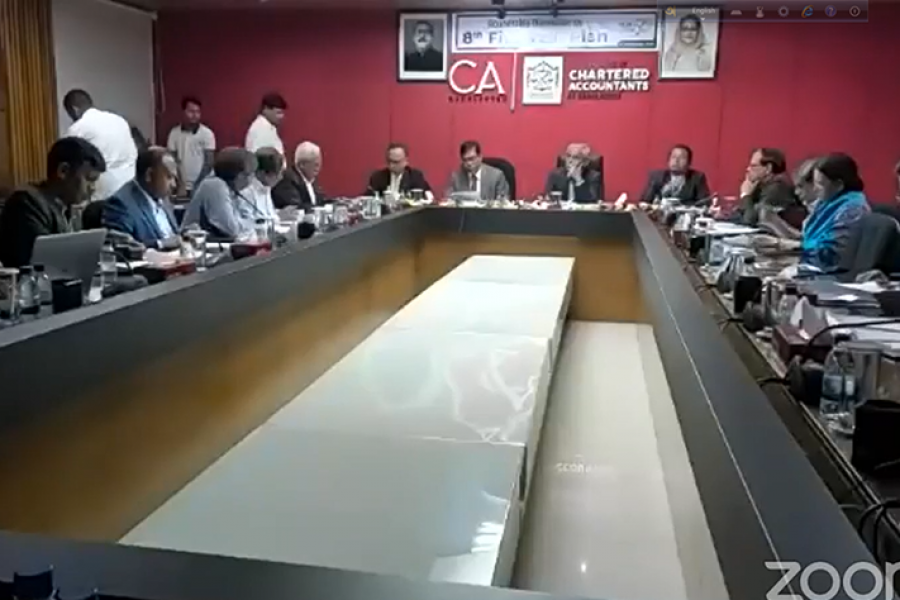Speakers at a roundtable on Wednesday said the government needs to properly address the issues relating to employment and investment in the 8th Five-Year Plan (8FYP), targeting implementation of the SDGs and the country's LDC graduation.
Besides, the government should remain watchful during the 8FYP implementation, so that mistakes in the 7FYP are not repeated.
The speakers said in order to compete in the global market, the country has to focus on social, environmental and labor-related compliances, as these would be key issues after the LDC graduation.
Creating employment, export diversification, investment, and policy support to adopt technologies relating to the Fourth Industrial Revolution (4IR) should be on the priority list in the 8FYP, they added.
The Institute of Chartered Accountants of Bangladesh (ICAB) organised the roundtable on the 8th five-year plan at CA Bhaban in the city.
Speaking as the chief guest, State Minister for Ministry of Planning Dr. Shamsul Alam said the 8FYP is not only an indicative essay or article. It is a quite doable action plan, whose key features are adjustable, if needed.
Policy Research Institute of Bangladesh (PRI) Chairman Dr. Zaidi Sattar said technically and qualitatively the 8FYP is the finest five-year plan. Trade and industry are supposed to be the driving force for the targeted high growth in it.
The government needs to take more steps to accelerate growth, slowed down by the Covid pandemic and the Russia-Ukraine war, he opined.
Bangladesh Bank (BB) former governor Dr. Atiur Rahman said reducing growth target is justified.
"Keeping the GDP growth rate above 6.0 per cent despite the domestic and global turbulence is our success."
Bangladesh has begun to get results of the necessary steps, taken by the central bank to address trade deficit and current account deficit.
Agriculture sector would be benefitted, if the policies taken in the 8FYP are duly implemented, he noted.
National Board of Revenue (NBR) former chairman Dr. Muhammad Abdul Mazid urged the government to bring further reforms in the tax regime to get the best success from the ongoing five-year plan.
Accountability and monitoring of the plan are crucial for proper implementation of the 8FYP, he added.
Policy Exchange Bangladesh Chairman Dr. M. Masrur Reaz said the 8FYP is flexible, unlike the previous ones, which is a very positive approach.
He also urged the government to review the failures of the previous plans to bring success to it.
Business Initiative Leading Development (BUILD) CEO Ferdaus Ara Begum said the more the government would team up with the private sector, the higher would be chances of the 8FYP to be effective and successful. ICAB Chief Executive Officer (CEO) Shubhashish Bose, in his keynote, said the government needs to duly address the issues relating to forex reserve, import surge, export development, remittance inflow, inflation, GDP growth, tax-to-GDP ratio, foreign direct investment, and human resource development.
Bangladesh has targeted 8.51 per cent economic growth for the 8FYP. To accommodate this growth target, the gross investment needs to be raised to 36.59 per cent of the GDP by FY 2025, he added.
The duration of the 7FYP ended in June 2020. However, due to the Covid-19 pandemic the 8FYP has been delayed. The General Economics Division (GED) of the Planning Commission had to revise its targets and strategies in view of the pandemic.
The 8FYP, a projected course of action for five years, represents the first phase of the country's Perspective Plan 2041.


